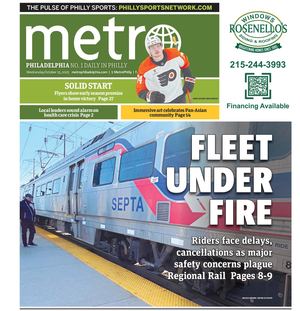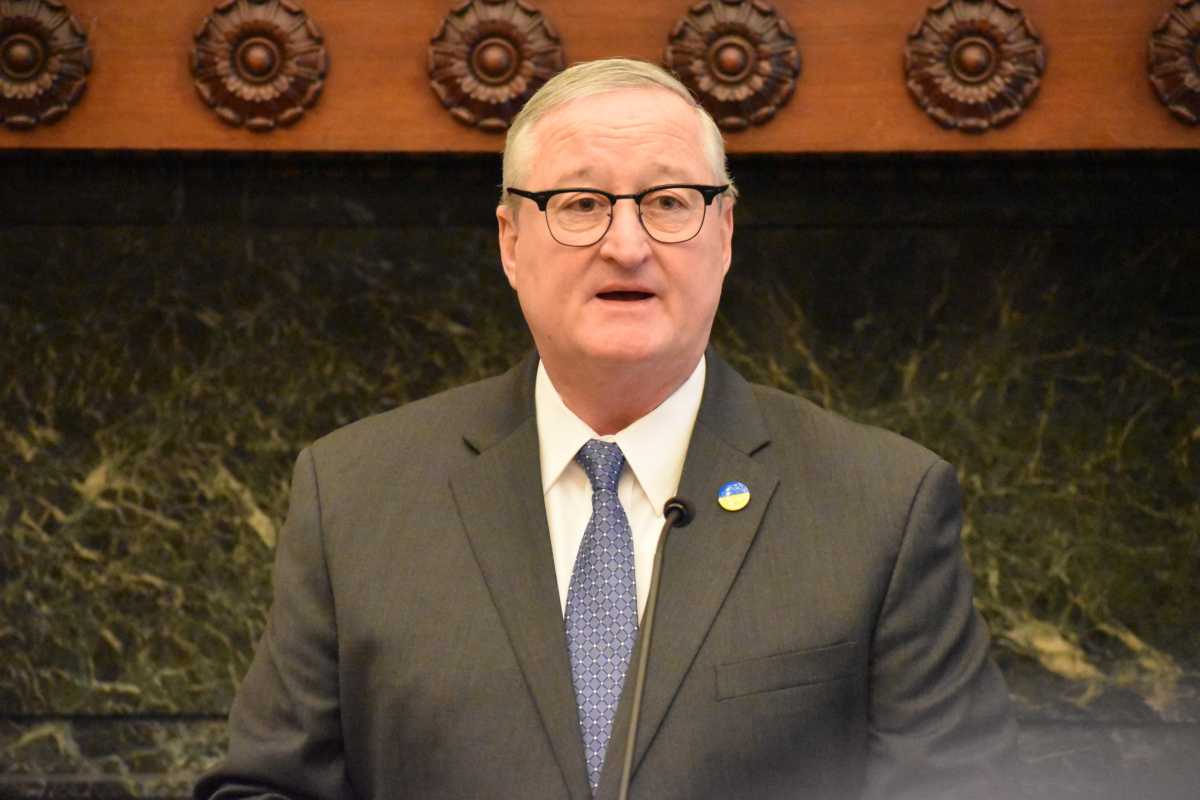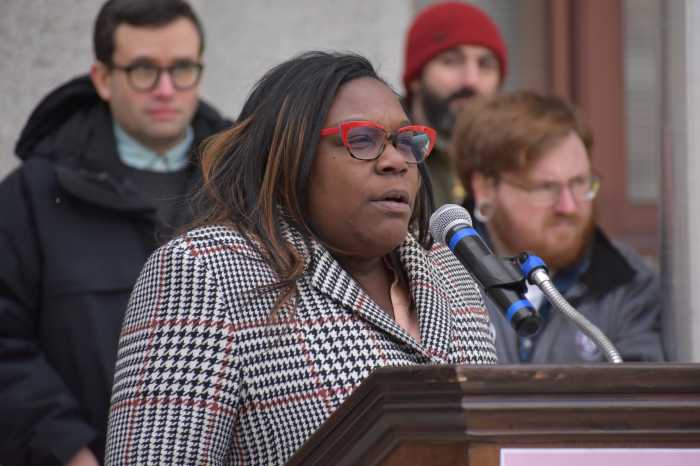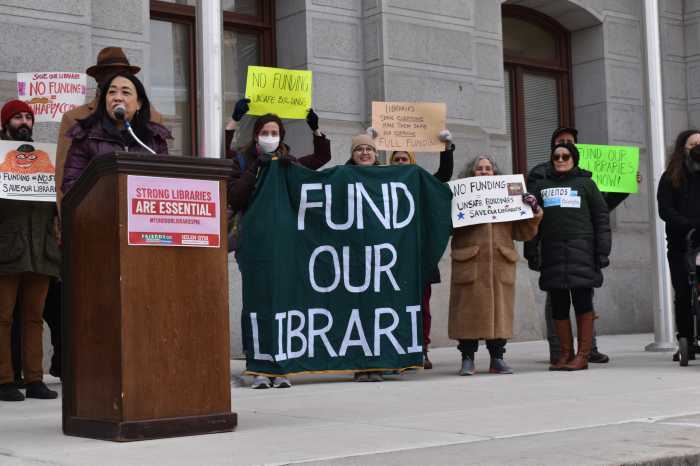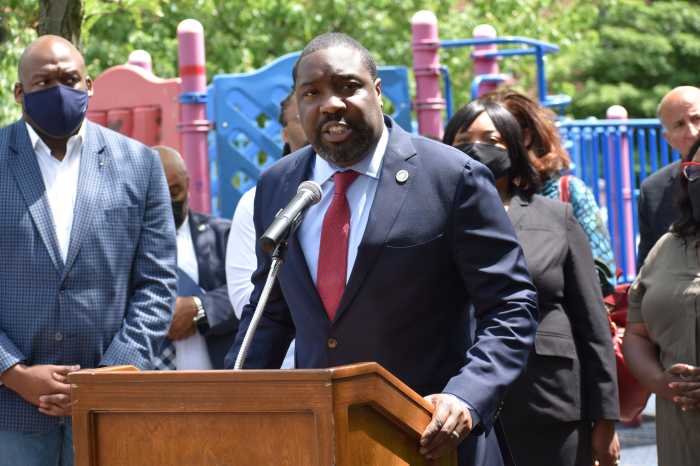Mayor Jim Kenney’s $6.1 billion proposed budget incorporates a SEPTA free fare initiative; significant investments in education; and modest tax cuts.
Kenney on Thursday delivered his spending plan to City Council, kicking off Philadelphia’s annual budget cycle – during which advocates and departments will jockey for funding and lawmakers will look to advance their priorities.
In his final budget address, Kenney, who is leaving City Hall at the end of the year, struck an optimistic tone. His second term has been beset by the coronavirus pandemic, racial justice protests and record levels of gun violence.
“Today, children are back in school,” he said. “Center City’s comeback is national news. Airport travel is up more than 25% compared to last year, and new businesses are opening, arriving and expanding here.”
Among the new initiatives included in his budget is a $62 million two-year pilot program to fund SEPTA transit passes for at least 25,000 residents at or below the poverty line. An additional $18 million will pay for a zero fare program for city workers.
“SEPTA’s system is rebuilding ridership back to pre-pandemic levels, and we are optimistic that these investments will help the agency sustain and improve the critical services that so many Philadelphians rely on,” Kenney said.
His administration is proposing a $12 million boost to the School District of Philadelphia, which would raise the city’s contribution to $282 million.
Money is also incorporated to fund 950 new seats in the city’s free pre-kindergarten program, known as PHLpreK, which Kenney started early in his administration with proceeds from the soda tax. The program currently serves around 4,300 children.
“Establishing and expanding this program is the highlight of my career, and I look forward to its continued success in the years to come,” Kenney said.
Kenney’s long-term spending plan also budgets for six-day-a-week schedules for all Free Library of Philadelphia branches and weekend hours for recreation centers, officials said.
He offered no new taxes, and the city is not reassessing properties for real estate tax purposes. Last year’s reassessment increased total residential values by 31%.
The wage tax for Philadelphia residents, under Kenney’s plan, would be reduced to 3.7565%, from 3.79%, and the net income portion of the Business Income and Receipts Tax would be cut from 5.99% to 5.83%.
Chellie Cameron, head of the Chamber of Commerce for Greater Philadelphia, said the tax changes “will help businesses throughout the city prosper, allowing Philadelphians across zip codes to enjoy an improved quality of life.”
Philadelphia’s finances continued to be buoyed by President Joe Biden’s American Rescue Plan, which allocated $1.4 billion to the city.
Kenney’s budget utilizes $391 million in ARP funding for the next fiscal year, beginning July 1. Without the federal dollars, the administration would have to consider significant spending cuts and tax hikes, according to the spending plan.
For the Philadelphia Police Department, Kenney’s long-range budget details $50 million for a new forensics lab, as well as funding for additional forensic specialists. The PPD’s total annual budget would rise to $855 million, a $55 million increase from the current year.
The proposal also calls for street sweeping to be expanded into six new neighborhoods in the coming year and funds the hiring of a fourth crew to combat illegal dumping.
Council will hold a series of hearings – scrutinizing every department’s individual budget – over a five-week period beginning March 28.
Following Kenney’s address, Council member Jamie Gauthier, who represents West Philadelphia, indicated her focus would be on increasing affordable housing.
“The 100 new supporting housing units proposed by the mayor is an excellent start, but City Council can go further,” she said.
Councilmember Isaiah Thomas, chair of the body’s education committee, said in a statement that the school district’s $282 million allocation “is urgently needed but not enough.”
Lawmakers must reach a budget deal with Kenney before the end of June.
